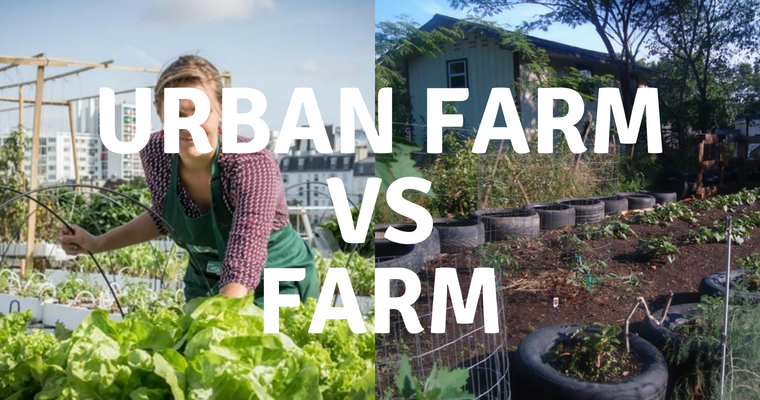Urban Farm vs Farm: The Difference

We recently received a suggestion through our Facebook page that we change our category from “farm” to “urban farm.” While I respect and appreciate the suggestion, I would like to explain why we are going to reject it.
First of all, we are not located in an urban, suburban, or even rural “housing development” setting. The valley we live in always has been and continues to be zoned “agricultural” (one of the reasons we were attracted to this part of town). That zoning is something we will fight to keep for the rest of our lives. It should interest those of you reading this that in 2001, Tennessee was in the top 10 states losing agricultural land to development. Once agricultural lands are developed, it is nearly impossible to restore them to anywhere near its original state. In other words, once farmlands are lost, they’re nearly forever gone.
Second, one of the first things we did after we bought the place was to register our property as a farm with the Soil Conservation office here in Knox County. We did so intentionally in an effort to protect its zoning and future use. We bought this property just ahead of the 2008 market crashes when developers were snapping up “undeveloped” (in actuality, fallow or unused agricultural land) and throwing up housing developments at light speed. We wanted to avoid that happening here.
For the reader making the suggestion, it may have been the size of our property that motivated the suggestion. We are a small acreage located between single family residences also on small acreages, all of which were parceled off of what was once a larger farm (most of the parcels originally going to family members of the original farmer; we are indirectly related to that farmer through marriage). Would we like to obtain the other parcels and restore the original farm? You bet. We just haven’t found the right combination of lottery numbers yet!
It may be because you don’t drive past our place and see tractors and plowed fields. When we were actively producing crops for market (we are fallow right now due to family health issues which prevent our being able to put in and maintain crop gardens), we were doing so by hand via market “gardens”, raised beds and containers rather than plowed fields. This eliminated the need for expensive equipment and allowed us to increase yield by using “square foot” gardening methods in a larger than average area. The “methods” a farmer uses do not determine “urban farm” vs. “farm”.
This is not intended in any way whatsoever meant to diminish urban farms or urban farmers. Urban farms and their farmers are just as critical to feeding the world as traditional farmers! In fact, with the growing economic inequality and increasing number of food deserts in urban and suburban areas, they are possibly even more important. The methods, techniques, etc., used to create and maintain urban farms are different and somewhat specialized (in our opinion), and we have a significant respect for urban farms. We wish there were more of them (like one at every public school in the country, for starters!). But we’re not going to call ourselves one when we’re not (which, if we did, would in our opinion diminish the importance of real urban farms).
Again, I believe the suggestion was well-intentioned and I appreciate and respect the suggestion. But we will continue to stand by our decision to call ourselves a “farm”, a farm located in a rural area (per Knox County’s MPC designation), and not in an “urban” or even “suburban” setting.
As an aside, to those individuals who are considering leaving “urban” and “suburban” settings to buy a “house in the country”, a warning: Don’t do so and then begin the process of trying to change the country to the city. The livestock, hayfields, crop fields, etc, were more than likely all there when you looked at your “dream house in the country”. The country is not the city or suburbs (praise God!). We’re already living our dream, and it involves chickens, horses, mules, peacocks, guineas, geese, pigs, gardens, fields, and more. If you’re not prepared for the noise, smell, or “activities” of livestock and farmers, your “country dream house” is going to become a nightmare and your neighbors your worst enemies.